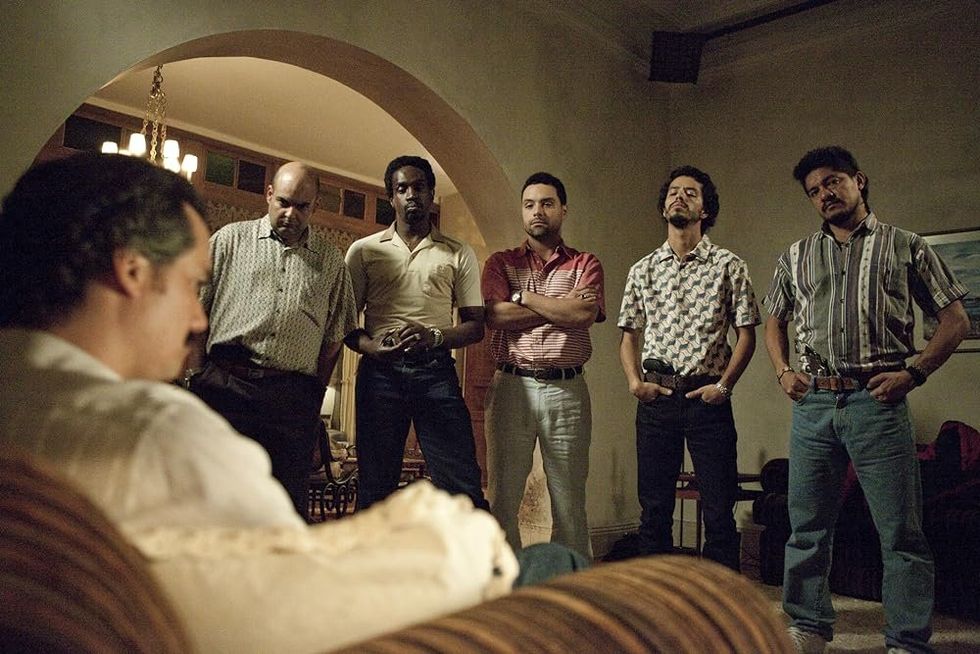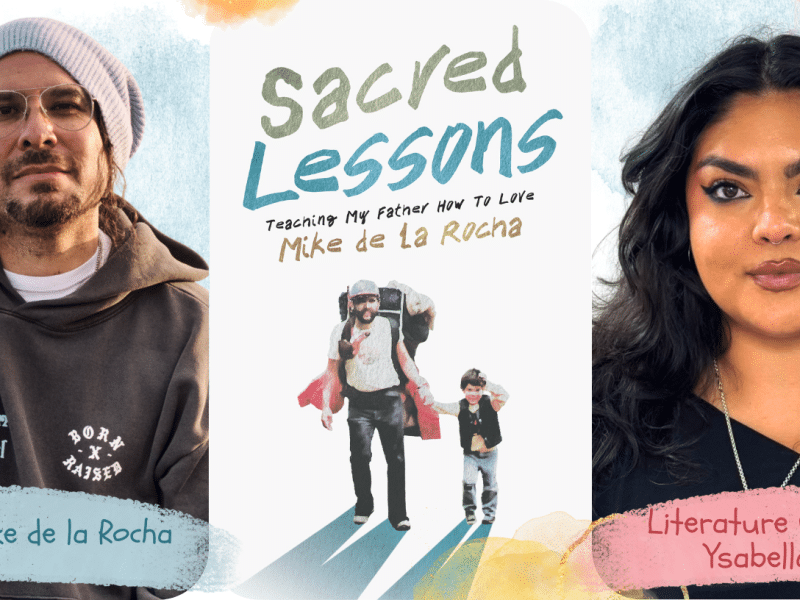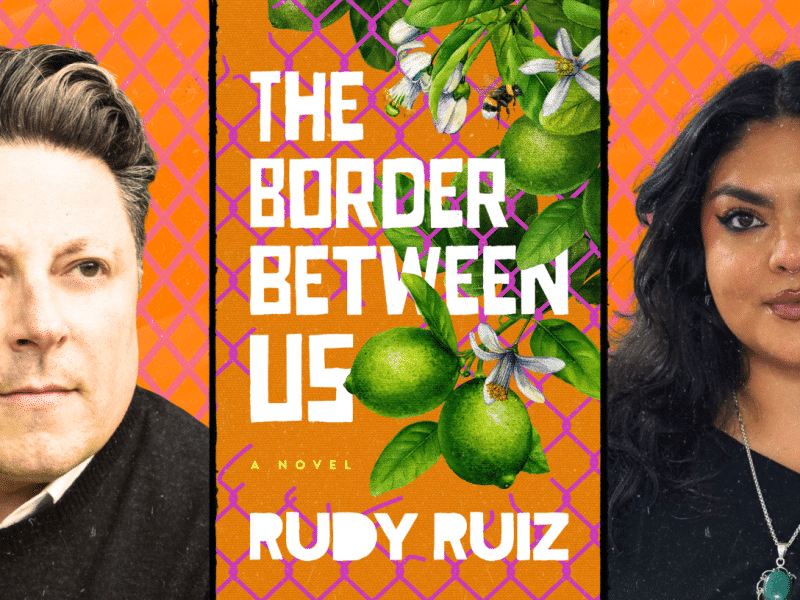The Latino Drug-Smuggling Stereotype: Alive and Well Because of Hollywood’s Obsession with Narco Shows
No one denys that Narco shows can be entertaining. But here’s the thing, indulging in crime dramas is fine – reinforcing inaccurate and harmful stereotypes is not.

Throughout the history of storytelling, media representations of different cultures and communities have played a significant role in shaping public perceptions of people within those communities. Unsurprisingly, these depictions have a lasting cultural impact, and influence the way we interact with each other in real life.
For Latinos, this influence has often been one-sided, with popular media frequently portraying this community within a narrow and mostly negative scope. The rise of narco dramas, as exemplified by shows like “Griselda,” “Narcos,” “El Chapo,” and “Queen of the South,” among others, has raised significant concerns about the way Latinos are represented in popular culture. For Latinos, this influence has often been one-sided, with popular media frequently portraying us within a narrow scope. The rise of narco dramas that often glorify drug cartels, as exemplified by shows like “Narcos,” “Breaking Bad,” “El Chapo,” and “Queen of the South,” has raised significant concerns about the way Latinos are represented in popular culture.

Narcos: Mexico (2018)
www.imdb.com
While these kinds of narratives do portray one very small aspect of reality, they do so at the expense of other dominant aspects of Latino culture. Instead of getting far more interesting, multi-faceted, and complex stories that highlight the Latino community, the public is stuck with stories emphasizing violence, crime, and lawlessness.
The Rise of Narco Culture in Media
Since the release of “Narcos” on Netflix in 2015, the world has seen a rise in narco-related dramas. These series, while dramatic and engaging, often focus on the most dangerous elements of Latino societies, presenting a skewed perception of Latin America as a haven for crime and corruption. Such depictions have a tangible impact on public perception, reinforcing harmful stereotypes and feeding into prejudices against Latinos.
The portrayal of Latino characters, specifically males, in these series, predominantly centers around the ‘macho’ narco, exhibiting hyper-masculinity and often engaging in violent, criminal behavior. This representation reinforces the stereotype of the violent, dangerous Latino man, contributing to a distorted view that alienates and stigmatizes Latino communities.

Narcos (2015)
www.imdb.com
This skewed representation in popular media has contributed to the shaping of the Latino image in the global psyche, often leading to harmful consequences. For example, research has shown that such portrayals can influence policies, such as immigration laws, where Latino immigrants are more likely to be seen as a threat. Who can forget when former Rep. Steve King (R) argued during his opposition to the DREAM Act and said about undocumented immigrants, “For everyone who’s a valedictorian, there’s another 100 out there that weigh 130 pounds, and they’ve got calves the size of cantaloupes because they’re hauling 75 pounds of marijuana across the desert.”
The Role of Latina Women in Narco Dramas
Interestingly, narco dramas also present an intriguing portrayal of Latina women. Shows like “Queen of the South,” and “Griselda” depict Latina women as powerful figures within the narco world as well. They are shown as strong, intelligent, and fiercely independent, often rising to leadership positions in a male-dominated world, and even surpassing their male counterparts.
While this portrayal, in some ways, challenges traditional gender roles and norms, it also raises concerns because it adds to the limitation of how diverse communities are portrayed in the media. With shows about Latino criminals constantly at the forefront, it often feels like the only portrayal of Latinidad most of the world is exposed to is crime-ridden and violent.

Griselda (2024)
www.imdb.com
Additionally, the representation of Latina women as sensual femme fatales plays into another harmful stereotype of hyper-sexualization. While these characters are often portrayed as empowered, their sexualization can limit their representation to their physical attributes and appeal, thereby reducing the complexity of their characters.
The feminist argument is also often employed to defend putting women in these roles by declaring them powerful and independent. However, these harmful narco roles actually undermine what true feminism actually is. What feminism is not, is violent, greedy, and power-hungry. An empowered female character isn’t a feminist when all they have done is put a woman in a role defined by toxic masculinity.
While crime dramas with Latino figures can serve as a way to explore positive characteristics like resilience, grit, passion, and a desire for a better life, the fact that these human endeavors and attributes are explored in the context of crime and drugs, muddies the waters. We continue to await a time when Hollywood dares to explore the Latino experience outside of that context and a time when people will demand an expansive view of Latino culture being placed in front of them.
Toward a More Balanced Representation
It continues to be clear that a more balanced portrayal of Latinos in the media is not only necessary but also long overdue. Latinos are doctors, teachers, entrepreneurs, artists, scientists, and so much more. These narratives deserve to be told and celebrated. Shows like “The Lincoln Lawyer,” “On My Block,” and “Gentefied,” among others, have made strides in showcasing the multi-dimensional nature of Latino lives, highlighting the richness of their culture, struggles, and triumphs.
American Latinos are more than the roles that have been scripted by white studio executives and showrunners. It’s not the first time, or the last time, that the harm these stereotypes cause will be called out, but what is clear, is that the calls to tell authentic and accurate Latino stories continue to get louder.




